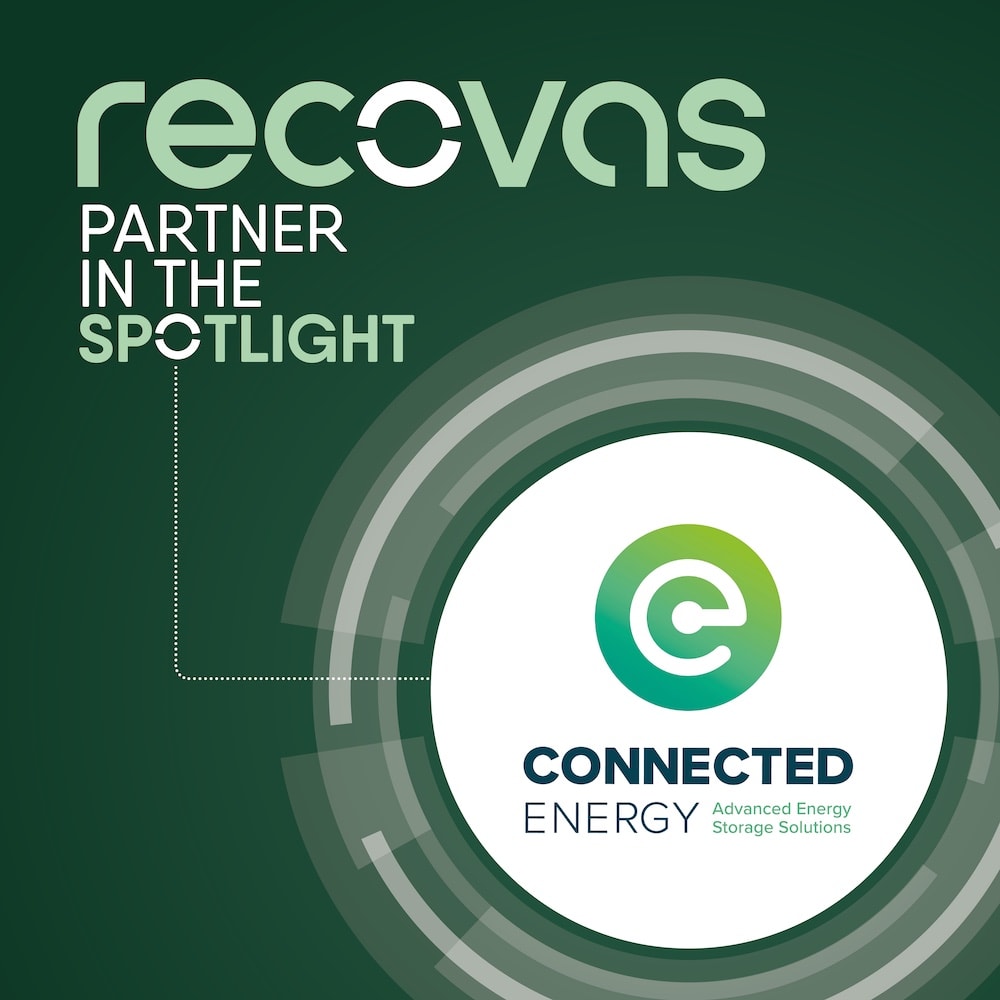CHOOSE
A DIFFERENT TERRITORY

Creating a circular supply chain for electric vehicle (EV) batteries is seen by many as an essential step in decarbonising the UK’s road transport.
RECOVAS – a consortium including car manufacturers, recyclers, battery experts and academia (part-funded by the Government’s Advanced Propulsion Centre) – is now delivering on this goal by scaling up the reuse, remanufacturing and recycling of EV batteries from end-of-life vehicles.
One RECOVAS partner, Connected Energy, is focused on ensuring the useful life of every EV battery is maximised, even when the battery has come to the end of its life in terms of powering a car.
The firm, which has bases in Newcastle and Norfolk, develops innovative energy storage systems which help businesses and organisations store energy and better manage its use.
“Energy storage works hand in hand with renewables and many of the businesses we work with also have solar panels on site,”
says Tania Saxby, Project Coordinator at Connected Energy.
“Our system stores energy when the sun is shining so it can be used when it isn’t, directly reducing the amount of energy our customers pull from the grid, in turn reducing their carbon footprint and energy bills.”
The Connected Energy model is also designed to have benefits for the UK’s energy network as a whole, Tania adds:
“Energy storage can help buffer peak loads so that, if an organisation is struggling with capacity issues, it can manage demand. Similarly, our customers can sell energy back to the National Grid when demand is highest, generating additional revenue at the same time.”
Tania says she sees this model as becoming crucial to the UK’s wider energy strategy:
“As the National Grid transitions towards using more renewable power, the challenge is that electricity won’t always be generated as and when we need it. Solar power is only available during the day and wind can be strongest in the middle of the night, so energy storage will become vital.”
So, what does all this have to do with EV batteries and the RECOVAS project?
“Some of the best performing and most efficient batteries are found in EVs. Batteries are forecast to last for around 12 years in a vehicle but can then be repurposed as an energy store for another ten years. If we can offer these batteries a second useful life by using them in our systems, it maximises valuable resources and helps to reduce a battery’s carbon footprint. This will improve the overall efficiency of the whole EV supply chain as well as helping our energy network become more resilient,”
Tania says.
And working with car makers as part of RECOVAS has also helped Connected Energy change the way these businesses see EV batteries, she adds:
“As the market for electric vehicles grows, so to do the number of end-of-life batteries. This provides a major challenge to EV manufacturers in terms of reducing the environmental impact of their disposal. Providing a second life for batteries offers a real benefit and the industry is now waking up to the opportunities available for maximising their value.”
While the circular economy has been seen by many as simply returning material from old vehicles back to manufacturers, Tania says a sustainable supply chain for EV batteries must include options such as energy storage:
“It will eventually become common practice for car manufacturers to lease out their batteries to Connected Energy for 7 to 10 years as part of our energy storage systems. They will then be able to retain the overall value of the battery.”
Connected Energy hopes its involvement in RECOVAS will help it achieve this goal.
“Connected Energy exists to maximise the life of electric vehicle batteries but equally as important to us is what happens to a battery at the end of its life in one of our systems. So RECOVAS, and its learnings, will help us to develop meaningful relationships for the next stage of a battery’s life and allows us to share our knowledge and experience of second life batteries with other RECOVAS partners.”
With both EV use and renewable power generation set to soar in the next decade, the work Connect Energy is doing as part of RECOVAS will lay the foundations for generations to come.